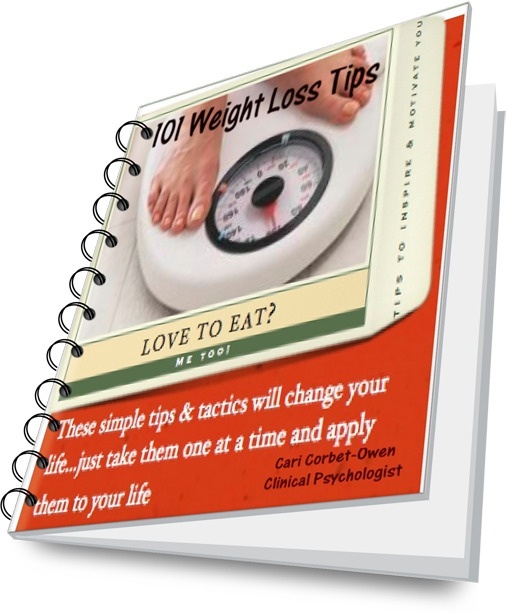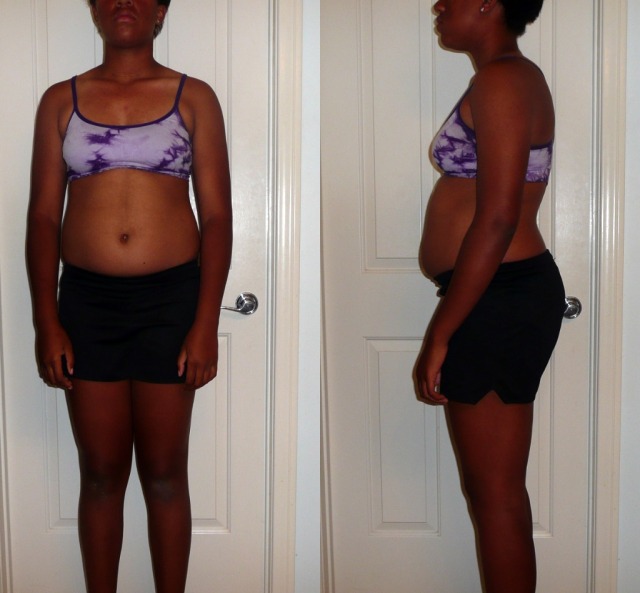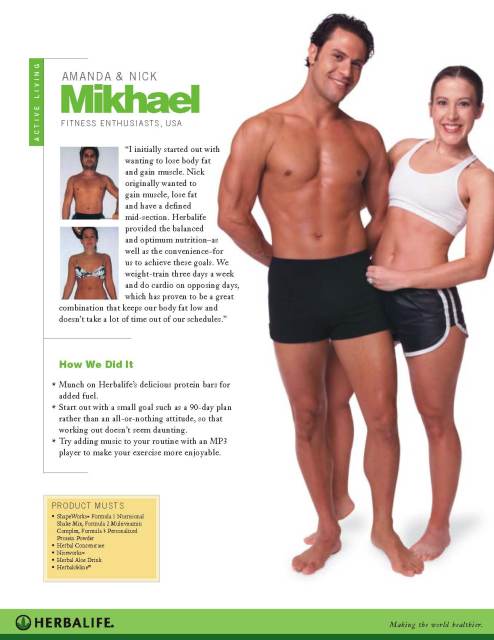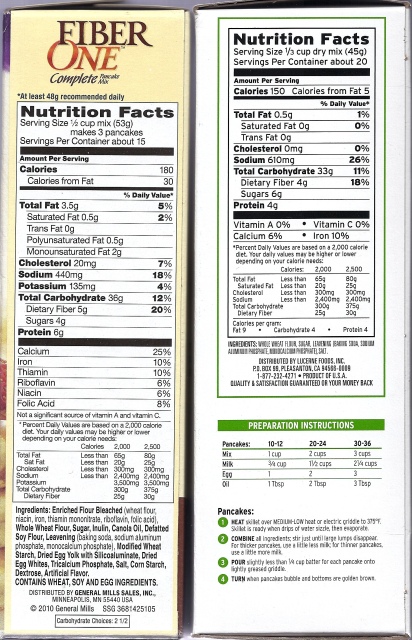Should I lose more?
Question
Hi! I am a 19 year-old female and am 5'9" and weigh 167 pounds. This past December, I weighed myself to find that I weighed 186 pounds. I began to diet by cutting way back on my food intake, limiting myself to about 2 good meals per day, with an occassional dessert. I also eliminated all sodas and many things that contained high amounts of sugars, fats, and calories. So, in 6 months, I have lost a total of 19 pounds. I weighed 163 just last week, but I understand that weight does fluctuate. In my opinion, I do not think I am "obese," but I still consider myself as a bit overweight when I look in the mirror. According to the BMI, I am within the range that I should be for my height. The trouble that I am having pertains with how, when and WHAT to eat. On an average day, I will eat about 3 low-fat yogurts, perhaps some soup, some meat, or a salad for lunch, and I will eat a very good supper...whatever my mother makes. I've always heard to eat "whatever you want" at supper, as long as you haven't pigged out prior to supper or after supper. After supper, I will eat a yogurt, or sometimes some crackers. Although I try to include some excercise, it is hard to fit into my schedule. Do you have any advice or tips on how to help me to further enhance my diet, or do have any food tips? Any advice is GREATLY appreciated! Thank you so much!
Wow... all that yogurt!!! You'll never have a yeast infection that's for sure! You are right, a female's weight can fluctuate greatly depending on fluid intake, menses, salt intake, etc. I have a long diet explanation that I am going to attach to this, but I will sum it all up into a nutshell to give you the main idea of what I want you to try to do. I am happy to hear that you have given up or tried to limits the foods that you eat containing a lot of refined sugars and fats. What I want you to focus on is eating maybe only 2-3 servings of meat per week (a serving = 3 oz, or a size of a deck of cards). Your diet should consist of mainly fruits and vegetables, fresh, steamed, you name it... whole grains and 100% whole wheats. Try to avoid foods that contain white flour of any form. This helps your body regulate the way it uses energy (glucose) and helps keep you from storing excess "energy" as fat. That being said... here is the full version:
Our bodies were essentially designed to eat vegetables and fruit and complex carbs. If you look at our tooth structure and the length of our intestines, they were designed for vegetables/fruit/complex carbohydrates much more than they were designed for meat. A low fat diet can prevent 15-20% of all cancers. Notice, not all of them....so you have to die from something.
Remember, in the 50 years of the Framingham study that looked at risk factors form heart disease, none of the 6,000 subjects who had cholesterol less than 150 had a heart attack!
I try to explain the diet part by following 2 simple rules:
1. Eliminate animal fat. Because of this rule, it turns you into a "vegetarian". Oh well. There are some things to learn about this like making sure you still get essential amino acids. Soy protein has all eight essetial amino acids. Rice and beans have the major 3 amino acids (tryptophan, methionine, lysine). If you eat breakfast cereal with a dab of nonfat yogurt, you get the essential amino acids. In general "whole grains" plus legumes (any bean) will give you the essentials. Your body only needs 14 grams of essential fats a day to survive and you can easily get this from vegetables. I also take a B12 vitamin to ensure I get enough B12. I use soy milk on my cereal (and sometimes drind 4 oz extra).
Remember 1 gram of fat is 9 calories. One gram of protein or carbs is 4 calories. That is part of the reason you don't need to worry how much you eat in this lifestyle. You eat when your hungry. But as explained in rule number 2, you don't get hungry the same way you are now!
2. Eliminate simple carbohydrates. What does that mean?
First, eliminate simple sugars like cake, candy, cookies, pop (regular), juice, etc. In other words if it tastes sweet, avoid it. I follow this rule 98% of the time. I will have a rare jelly bean or ice cream/cake at a birthday party, but in very limited quantities and never more than once a week. This rule is very important to stop the carb cravings you talk about.
Second, eliminate processed grains. These are things with white flour/white rice, etc. When they process the grain, they take out the fiber and bran which slows the absorbption of the carbs. Subsequently, just like with simple sugars, you raise you blood sugar level quickly. This makes insulin rise, but it will frequently overshoot.
This causes two problems: 1. It turns on your lipoprotein lipase and causes you to turn your sugar to fat. 2. It causes your sugar to go back down low and drive you to crave more carbs and thus the cycle begins all over again. After two weeks of this low fat/no simple carb diet, those cravings will go away. You still get hungry..in fact I "graze" a lot. I eat pretty much all day, but follow the rules.
What are complex carbs? Whole grains....whole wheat, brown rice, corn, rye, etc. If you buy bread make sure it is 100% whole grain. Many "wheat" breads in the store still have white flour in it. If ingredients say "enriched flour" it likely is white flour.
This is not hard to follow from the standpoint of hunger. It is hard to follow from the standpoint that in our society, 80% of the foods (or more) that are presented to you in social situations are simple carbs and fat.
It takes discipline. But I have come to think of those foods as poison since they make me feel lousy.
Benefits of this lifestyle:
1. More energy
2. Less anxiety/depression
3. eliminates heart disease and type II diabetes
4. lowers cancer risk (not eliminate)
5. you will drift to your "ideal" body weight without focusing on losing weight. It may take 6-12 months, but it will happen if you are strict on the rules.
Other components to the lifestyle besides what you eat:
1. exercise
2. eliminate caffeine (I haven't completed this yet, but I am close) This and all stimulants increase the activity of your nervous system and this has negative consequences for your heart. Eliminating this also reduces anxiety.
3. meditate/pray/relax your muscles.
Atkins had it 1/4 right. By eliminating carbs, his diet eliminates simple carbs. But you don't have to eliminate complex carbs...he's wrong there. Also, fat itself in the diet is shown to cause damage to arteries and make you blood easier to clot regardless of cholesterol. Remember Dr. Atkins had heart attack 2 years ago, but he said his diet didn't cause it!
Sorry for the long winded answer, but I think this is the key to obesity in America. We are loaded with simple carbs and fats and we wonder why we can't lose weight. Remember, the average Chinese person is near ideal body weight. The average American is obese. The Average Chinese eats less than 15% fat diet. The Average American gets 40-50% calories from fat. The aveage Chinese eats 20% MORE calories per day than the average American, but they are not fat!
- Prev:chest fat
- Next:Salad, good?
Related Articles
-
question on butter and bread
Questionis butter okay to have once a day to put on my toast im u
-
body building
QuestionSir, i am indian (male) of 22 years old. my body w
-
Fatness!
QuestionHi George, My problem is that i seem to have a really sl
-
Zinc in cereals and other foods. Zinc role in teens growth
QuestionHow would i know which is a fortified cereals that contai
-
healthy tea
QuestionWhich tea is the healthiest for a mid-fifties couple? &nb
-
7 year old daughters weight
QuestionMy 7 year old is about 20 lbs overweight. She weighs 101l




